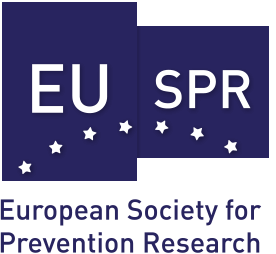Testing Mediating Mechanisms and Moderating Factors in Prevention Work
Aim:
In recent decades, there have been major advances in the design of studies to evaluate efficacy and effectiveness of preventive interventions. These advancements contributed to the quality of evaluation studies and the confidence in the findings. Most evaluation studies still focus only one of the most fundamental questions: Is the program effective? Relatively few research focus on other critical questions such as why, how, and when is a prevention program effective? Nevertheless, addressing these questions often requires complex statistical modeling, and some of these techniques are not commonly available to research community yet.
The goal of this workshop is introducing the new conceptual developments and statistical techniques that can be applied to testing mediating mechanisms and moderating factors of program effect. The audience will be provided with conceptual arguments about mediation and moderation effects and recent developments in modeling mediating mechanisms and moderating factors in prevention research.
Learning the theoretical underpinnings and application of these techniques may provide researcher with opportunities to address intriguing research questions such as: How does a program influence targeted outcomes? Does the program work consistent with the program theory? Which components of the program do account for the program effect? What factors do boost or hinder effectiveness of programs? Do the effect of a program vary across different socioeconomic conditions? Are the processes that explain the program effect generalizable across different groups? Answering these questions is essential for a comprehensive understanding of the prevention programs. This understanding may also contribute to translation of research findings into practice. For example, understanding the effect of program components may guide decisions regarding program modification. Similarly, understanding the factors that may influence program outcomes may guide decisions regarding program adoption.
Outline:
09:30 – 10:00 Introduction – Fabrizio Faggiano
10:00 – 11:00 Conceptual overview of mediation, moderation, moderated mediation
11:00 – 11:15 Break
11:15 – 13:00 New methods for testing mediating processes
13:00 – 14:00 Lunch
14:00 – 15:15 Examples
Example 1: Which components of the UNPLUGGED explain reductions in youth risk outcomes? (An example of multiple-mediator model)
Example 2: Does the Örebro Prevention Program work consistent with the program theory? (An example using Latent Growth Curve Modeling)
15:15 – 15:30 Break
15:30 – 16:00 Group group exercise
Aim: Giving participants an opportunity to apply the information they were presented in the workshop in evaluating the design and statistical analyses of published work.
Procedure: The participants will be given 2 published studies, and a number of questions regarding how these studies modeled and tested program effect.
16:00 – 16:30 Reflections on the “group exercise”
16:30 – 17:00 General discussion, questions, reflections
Instructor: Metin Özdemir, Ph.D.
Metin Özdemir received his doctoral degree in Community and Applied Social Psychology at the University of Maryland, Baltimore County in 2009. He is currently affiliated with the Center for Developmental Research, Örebro University (Sweden), where he coordinates a Master’s program in prevention science. His research focuses on youth adjustment in normative populations and testing effectiveness of preventive interventions for youths and families. He has been teaching courses on prevention science theory and methods including advanced level courses on testing program effectiveness.
Co-instructor: Fabrizia Giannotta, Ph.D.
Fabrizia Giannotta has received her doctoral degree in Social and Developmental Psychology at University of Torino (Italy). She is currently affiliated with the Center for Developmental Research, Örebro University (Sweden), where she holds a lecturer position. Her research interests focus on the study of protective and risk factors in adolescence and the cross cultural adaptation of prevention programs to combat risk behaviors in adolescence. She has been teaching courses on program development and evaluation and on research methods to evaluate programs effectiveness, in the Master program in prevention science at Örebro University.
